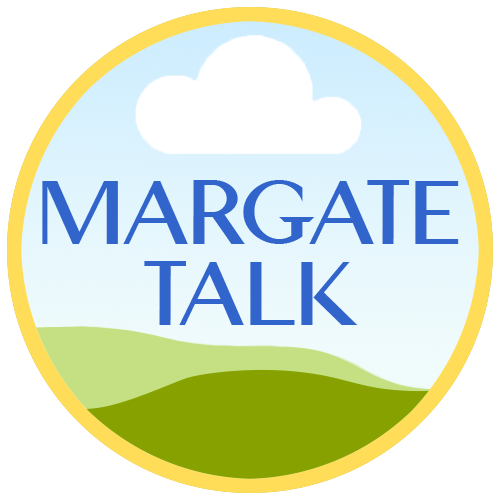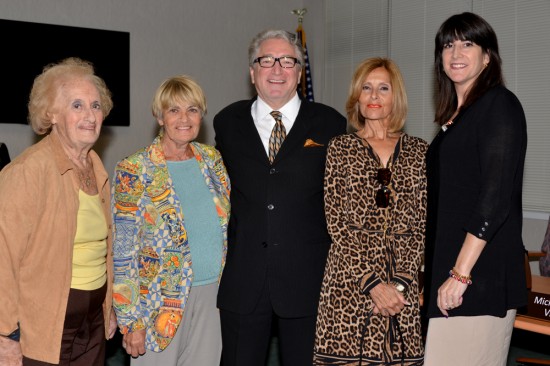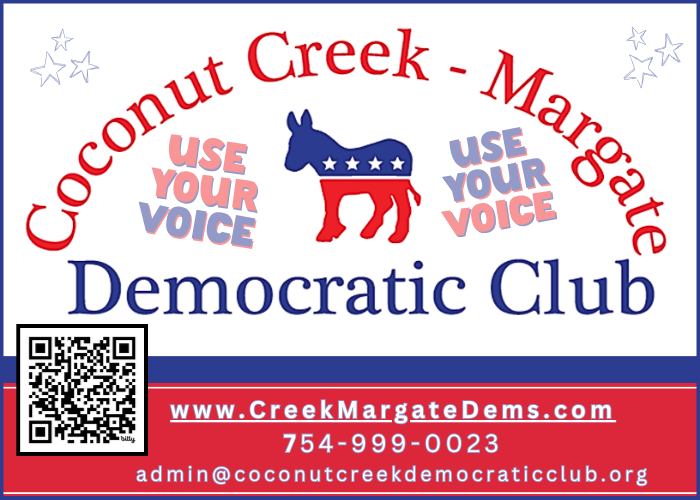By: Sharon Aron Baron
Tamarac City Commission members met this morning and discussed the request from the Woodlands Neighborhood Improvement District to turn oversight of it over to them.
In 2010, the Woodlands Neighborhood Improvement District was established by the Homeowners Association and the Tamarac City Commission under the Safe Neighborhoods Act. The intent of the district was to provide the community with additional tools to combat decline through crime prevention and beautification.
Because there are eight separate and distinctive sections within the community of 910 homes, with two of them not even part of the HOA, and one entire area without any documents at all, establishing the WNID was the best course of action to fund improvements such as new signs, security cameras, and other items.
After four years of their board failing in getting the District to move forward, the board decided they needed to turn the District over to the city to manage.
On July 28, the city received a letter from the WNID with two requests:
- Asking the City to assume management of the Board.
- Appoint the current Board as the initial Advisory Board
Director of Community Development, Maxine Calloway produced the Staff’s assessment at the workshop which said functioning Safe Neighborhood Districts with the City Commission serving as the Board of Directors, typically employ a more responsible approach. First the Commission would need an assessment to justify the creation of the District. This would require a formal input by referendum to get the “buy in” of the affected residents as to whether the District should be created, as well as whether the residents favor being taxed and assessed.
Back in 2010, the City enacted legislation where the District managed itself. The Mayor and Commission at the time did not want the city to be involved, unlike successful safe neighborhood districts in Lauderhill.
Unfortunately, the Woodlands District had minimal oversight which resulted in very little getting accomplished over the past four years.
Mayor Harry Dressler said, “The commission back then said ‘we’ll let you do this, but we don’t want anything to do with it. Were not spending any money on this, if the community wants to do this, communities can decide for themselves, especially in cases of taxation.’”
Despite their lack of involvement in the District, the City became did become involved financially through paying over $125,000 in legal complaints which were filed by resident Pat Barsorian, to which they had to defend.
“Anyone can make a challenge,” said City Manager Mike Cernech. “These were done pro se, so they didn’t have to put up any money. It was obvious this wasn’t done by a competent legal professional. They basically muddied the waters for a tune of $125K.”
Cernech said that the goal is to improve the neighborhood, and there is no reason why this cannot be successful. “This has not gone well in the Woodlands, there has been a lot of finger pointing where residents say ‘the city hasn’t done enough’ or ‘the board hasn’t done enough.’”
“When we’ve worked closely with the board recently to make it successful, we arrived at this solution that we would take over the District if we could, “ said Cernech.
Dressler said that four years has gone by and nothing has happened except expense to the City.
“The issue is, it’s a mess,” said Dressler. “We need to do two simple things: the most important is the people in the community voting. That is more important than, if the people don’t want to tax themselves to pay for it.”
“I think what we’ve learned in the process is that the Woodlands isn’t created like anyone else. The Woodlands has eight sections and two are bound to their section documents only. They aren’t mandated to the whole Woodlands,” said Vice Mayor Michelle Gomez.
“Every single community has had lawsuits, not just the Woodlands.” said Gomez. “I think it’s a great idea for the city to look at this again now.”
“If the needs assessment was done up front, then they could have held a referendum,” said Cernech. “We have the ability to have hindsight now, we didn’t have it then. The question is, do we throw another $10, $20,ooo at it? The suggestion is we do.”
In order to designate the City Commission as the Board of Directors, and the existing Board as an Advisory Council, the City would have to amend Ordinance 2010-14 as well as the continuation of the District be conditioned on a referendum of the residents. Should the referendum fail, the District would cease to continue. Estimate for the cost for the City including a Neighborhood Needs Assessment and referendum ballot postage would be $11,000.
The Mayor and Commissioners appeared in agreement to this approach, and will regroup and work on an amended ordinance in October.
Author Profile
Latest entries
 NewsNovember 20, 2025Margate Crime Blotter: Man Accused of Sawing Off Court-Ordered Ankle Monitor Arrested
NewsNovember 20, 2025Margate Crime Blotter: Man Accused of Sawing Off Court-Ordered Ankle Monitor Arrested NewsNovember 19, 2025Broward County Animal Care Highlights Pets of the Week: Cece and Parchessi
NewsNovember 19, 2025Broward County Animal Care Highlights Pets of the Week: Cece and Parchessi NewsNovember 18, 2025Margate to Sparkle with Holiday Cheer During 2025 Winter Festival
NewsNovember 18, 2025Margate to Sparkle with Holiday Cheer During 2025 Winter Festival NewsNovember 12, 2025Margate Crime Blotter: Two Juveniles Arrested After Attempted Shooting and Aggravated Battery
NewsNovember 12, 2025Margate Crime Blotter: Two Juveniles Arrested After Attempted Shooting and Aggravated Battery













